This Week Only – BOOK A HEARING TEST & GET 5% OFF ANY HEARING AID PACKAGE!
If you book a hearing test and purchase hearing aids at any time until the 5th December, we’ll give you 5% Off any hearing aid package!
Hearing Tests
Find out about your level of hearing loss with our audiologist today.

Free Hearing Test
Leading Brands
0% Payment Plans
Try In-Store
2 Year Warranty
Free 15 Min Hearing Assessement
Concerned you might have hearing loss? Why not book a free 15 minute hearing test. Our audiologist will then consult with you to discuss further options if they are required, such as a free comprehensive hearing test & consultation and a demonstration of our leading range of hearing aids to try out in the clinic.
Comprehensive Hearing Tests
Free for over 50s and just £75 for under 50 year olds
Our 90 minute, fully comprehensive hearing tests at HCD Hearing Clinics are designed to check how well the ears respond to sounds, evaluate middle ear function, and ensure that hearing aids (if needed) are fitted accurately. Below are the typical steps involved in our comprehensive hearing tests at our Atherstone hearing clinic:

1. Case History and Consultation
The audiologist begins by asking about medical history, lifestyle, and any hearing concerns.
Information about noise exposure, family history of hearing loss, and current symptoms is collected.
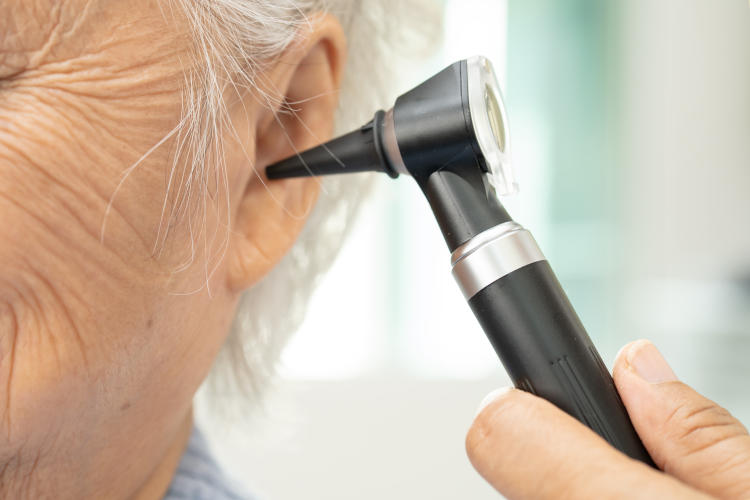
2. Physical Examination (Otoscopy)
The ear canal and eardrum are checked using an otoscope or video otoscopy as required.
This helps identify wax buildup, infection, or structural issues that might affect the test.
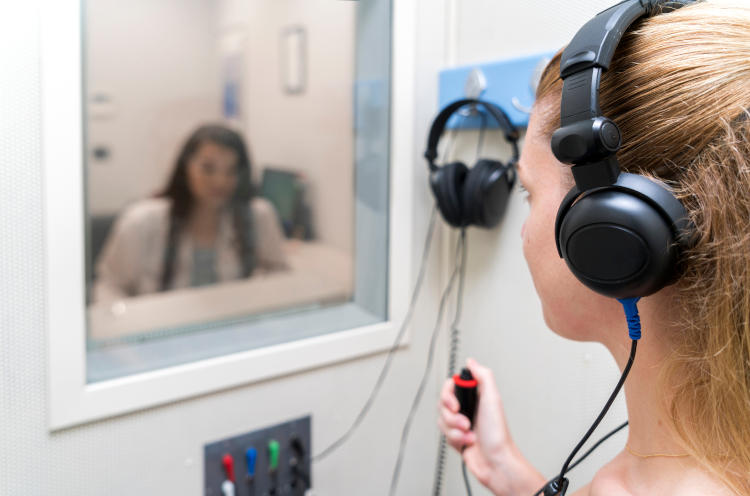
3. Audiometry
Sounds of different pitches and volumes are played through headphones.
The patient responds when they hear a tone, allowing the audiologist to map out a hearing threshold chart (audiogram).

4. QuickSIN
QuickSin is a fast and reliable speech-in-noise test that measures how well you understand speech in noisy environments. It helps identify signal-to-noise ratio (SNR) loss for accurate hearing assessments. QuickSin provides real-world hearing insights.
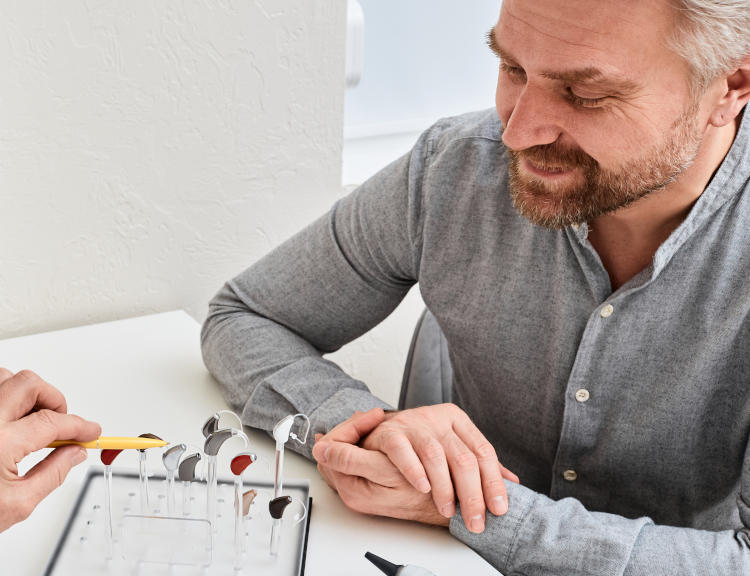
5. Review and Recommendations
The audiologist explains the results in detail.
If needed, treatment options may include hearing aids, medical referral, or follow-up monitoring.
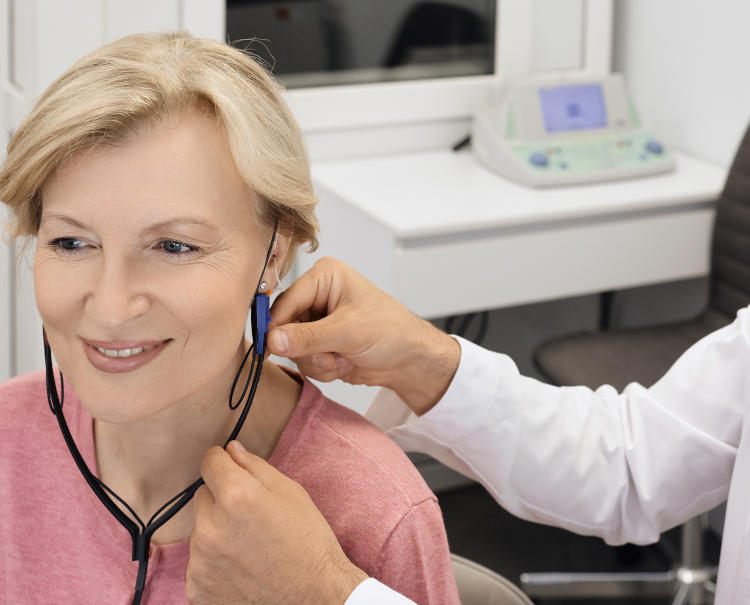
6. Hearing Aid & Accessory Demonstrations
If you do require hearing aids, our audiologist will introduce you to a range of options from leading manufacturers. You will be able to test out the hearing aids in-store, along with a variety of hearing aid accessories such as TV streamers and microphones, in our demo suite.
Thanks to Harpreet for his expertise and care and patience and thanks to Charlie for setting up this gem in Atherstone.
Merry Christmas 🎄
Professional quick customer focussed service which avoided any extra costs
Excellent service - A***
My ear feels incredible after blocking my ear by using a candle wax stick to withdraw wax and an ear bud. I had pushed the wax down which the doctors said I would need to wait a month for my ear to be syringed.
The staff members were so professional, welcoming and helpful as I had never been to the clinic before and did get a little lost trying to find the place and to park. They reassured me and were patient with any worries or questions I had.
I had not had micro suction before but despite it being a little noisy, it was quick and pain free.
The clinician showed me the inside of my ear on the iPad and explained and showed me both ears.
I love that it was able to be done on the day (no wait time or down time), after using olive oil to soften the wax.
The relief of being able to hear again is amazing!
I may return for my other ear as now I feel out balanced haha!
Thank you for being so knowledgeable, kind and patient.
Side not:
The car park by the leisure centre is free for 2hrs which is great for your 30’minute appointment. It is a short walk across the road to the shop.
The decor is very clean and modern too which was a lovely space to be in.
Hearing aids were received very promptly. On collection of aids received an extremely thorough demonstration on how to wear, clean and adjust the aids.
The clinic is extremely clean. We were not rushed and all our questions were answered. Would recommend trying this clinic 100%.
The gentleman I saw was fantastic really caring and explained everything clearly for me. Within a couple of minutes no ear wax in that ear and with just a weird ticking sensation and I could hear again!
Highly recommend them.
Thanks
He took his time and was very patient. She went in with very little hearing and 40 minutes later was able to hear as normal.
Also, it was a competitive price.
Very happy with the service.
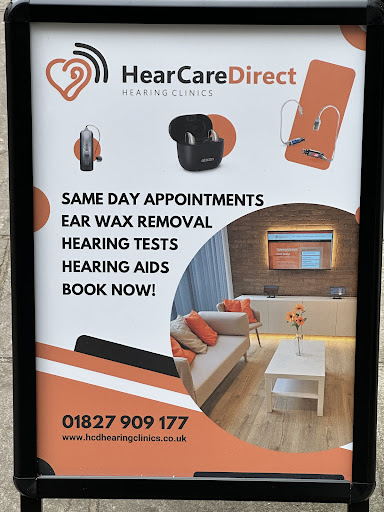
I highly recommend
Frequently Asked Questions On Hearing Tests
What kinds of hearing checks do you offer?
We offer a comprehensive diagnostic hearing test which includes speech in noise testing, demos of the different hearing aids we offer and a full consultation.
Who carries out the tests?
All assessments are carried out by fully qualified, BSHAA registered, HCPC registered audiologists who also advise on next steps and complete hearing solutions.
Do I need to prepare or bring anything?
Bring any hearing aids you use, a list of current medications and a note of any hearing concerns (tinnitus, dizziness, recent ear problems). If you wear hearing aids, please bring them along and any batteries that come with them.
How long will the appointment take?
A full diagnostic test or hearing aid consultation will take longer, usually between 1 hr and 1.5 hrs — your clinician will confirm at booking.
What happens after the test?
Your audiologist will explain the results, recommend treatment or monitoring, and demonstrate hearing aid options in the clinic’s demo/consultation space (if relevant).
















